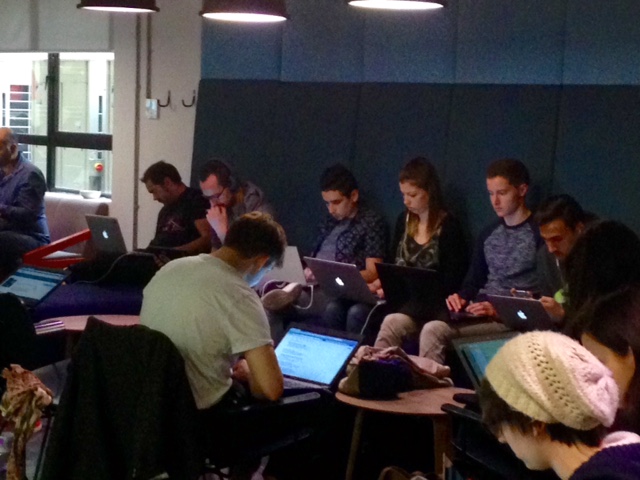Why Loneliness is Dangerous
Jun 22, 2015


Philippa Perry
Jan 22, 2025 23
Until recently loneliness had been characterised as a minor, unimportant condition without any redeeming features. If we were to imagine we were cars, with warning lights showing needs like hunger or thirst, we wouldn't feel that we needed one to deal with loneliness. It's simply not vital to life like physical pain or risk of dehydration. We put it in the same category as shyness, being a loner, or even maybe only the fate of people with limited social skills.
Nearly all of us have felt homesickness, unrequited love, bereavement and the humiliation of being rebuffed or ignored. We all experience from time to time feeling an empty hollow ache which is part of our need for acknowledgement, connection, or understanding from our fellow humans. These are all variables on the feeling of loneliness.
There's a stigma to loneliness as though you have to be some sort of loser to be lonely. There's also a myth that autonomy and independence are what we need to counteract the feeling. That is a dangerous myth. Despite the stigma, it makes no more sense to deny our loneliness than it does to deny hunger or thirst.
Loneliness is a major risk factor for premature death, rated as highly as smoking and twice as deadly as obesity
We need that loneliness light on our dashboards because loneliness is something we shouldn't ignore. It's a major risk factor for premature death, rated as highly as smoking and twice as deadly as obesity. Dementia, high blood pressure, alcoholism, and accidents are all accelerated by loneliness, and it also is a major cause of paranoia, anxiety, depression and therefore suicide.
Humans are shaped, more than any species, by contact with others. We form in relationships. One brain on its own is pretty useless, just as within our brain one neuron on its own is useless - it needs another to connect with, as we all need others to connect with. But in this age, more than any other age, it is as though we exist apart. According to a recent study, severe loneliness in England blights the lives of 700,000. And that's just those who are brave enough to admit to it.
We humans are naturally sociable pack animals. We can't prosper without community, without contact, without being looked out for. Good contact with others should be the thing we strive for more than wealth or sex.
But for some people it has the opposite effect. Loneliness triggers a state of hyper-vigilance for social threat. And when we expect social threat we can behave in ways more likely to get us rejected. It can become a self-fulfilling prophecy. In this hyper-vigilant state the individual becomes super-sensitive to possible rejection or coolness, finding it even when it doesn't exist.
This is why isolated people often scorn the idea of social interaction. Thinking we are somehow better than other people becomes an excuse to withdraw, as does thinking other people are superior to us. Both of these reactive thought patterns lead to a spiral of withdrawal and intensifies the sense of social isolation. This hyper- vigilant state is unconscious, making it feel very hard for someone to feel comfortable volunteering somewhere, joining class, or even picking up the phone.
A lonely person becomes super-sensitive to possible rejection or coolness; isolated people often scorn the idea of social interaction
Small talk is often spurned and yet what is small talk? It's just a way of saying "I'm friendly; are you friendly?" When I talk to you about the weather, all I want to know is about the temperature of our relationship. Someone who is on a downward spiral of loneliness is likely to scorn this type of interaction.
Online engagement seems to exercise a particular charm. And a charm of which we need to be aware. Hidden behind the screen, you may feel that you can control how other people perceive you. We can search for company whilst staying hidden, which means we can stay unrejectable and unfortunately stay lonely. We don't make contact when we only share who we wish we were; we can only make authentic contact when we share who we really are. So hiding behind a flawless avatar is not the answer. We need eye contact, we need touch and we need the actual real life presence of others.
So if being lonely is so dangerous what can we do about it? When we're hungry we go the fridge and get a snack, when we're thirsty we go to the fridge and find a drink. When we're lonely, we don't have a fridge full of friends to connect with --- so what then?
What you can do it
1. Recognise the warning light on your dashboard for loneliness. Don't simply deny it.
2. Understand what it does to you: you are a member of a social species, so it is dangerous to feel isolated. Recognise the hyper-vigilant state so you can over-ride it.
3. Work on the quality of your connections, share good times, and become a part of something bigger than yourself, like a Talk for Health group for instance.
If taking these steps seems impossible or overwhelming, then counselling or psychotherapy is an option. You can use the therapist as someone to practice feeling connected with.

Philippa Perry
